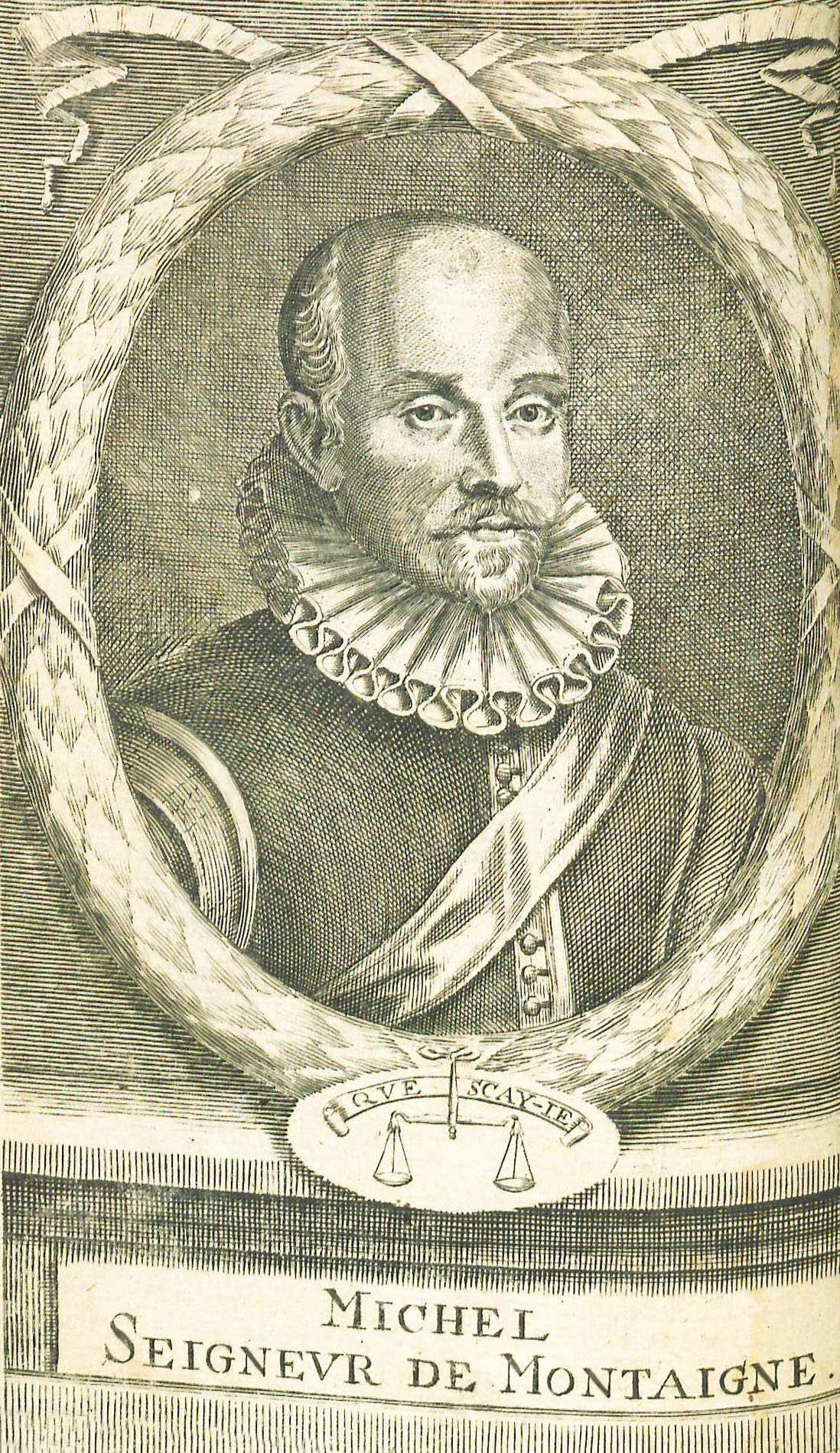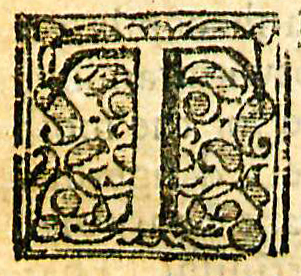Difference between revisions of "Essays of Michael Seigneur de Montaigne"
(Evidence) |
|||
| (14 intermediate revisions by 6 users not shown) | |||
| Line 2: | Line 2: | ||
===by Michel de Montaigne=== | ===by Michel de Montaigne=== | ||
__NOTOC__ | __NOTOC__ | ||
| − | [http://en.wikipedia.org/wiki/Michel_de_Montaigne Michel de Montaigne] (1533-1592) | + | {{BookPageInfoBox |
| − | All biographical information is from this source unless otherwise noted.</ref><br/> | + | |imagename=MontaigneEssays1711.jpg |
| + | |link=https://wm.primo.exlibrisgroup.com/permalink/01COWM_INST/g9pr7p/alma991024641029703196 | ||
| + | |shorttitle=Essays of Michael Seigneur de Montaigne | ||
| + | |vol=volume two | ||
| + | |author=[[:Category: Michel de Montaigne| Michel de Montaigne]] | ||
| + | |edition=Fourth | ||
| + | |trans=Charles Cotton | ||
| + | |lang=[[:Category: English| English]] | ||
| + | |publoc=[[:Category: London| London]] | ||
| + | |publisher=Daniel Brown [etc.] | ||
| + | |year=1711 | ||
| + | |set=3 | ||
| + | |desc=[[:Category:Octavos|8vo]] (20 cm.) | ||
| + | |shelf=L-4 | ||
| + | }}[[File:MontaigneEssays1711v1Frontispiece.jpg|left|thumb|220px|<center>Frontispiece, volume one.</center>]][http://en.wikipedia.org/wiki/Michel_de_Montaigne Michel de Montaigne] (1533-1592) was an influential philosopher and essayist with revolutionary values derivative of humanism, skepticism, relativism, and empirical knowledge.<ref> Marc Foglia, [http://plato.stanford.edu/entries/montaigne/ “Michel de Montaigne”], ''The Stanford Encyclopedia of Philosophy'' (Spring 2013), accessed on October 24, 2013. All biographical information is from this source unless otherwise noted.</ref> He came from a wealthy family of recent nobility, and was educated in the classics and Latin before he was sent to school at the age of six. Montaigne worked as a lawyer, including positions as a counselor of the Court des Aides of Périgueux and counselor of the Parlement in Bordeaux. He retired from public life in 1571. Despite his retirement, Montaigne remained active in the political sphere, where he advocated following custom and ancient societal laws.<ref> John Christian Laursen, “Michel de Montaigne and the Politics of Skepticism,” ''Historical Reflections'', 16, No. 1 (Berghahn Books, Spring 1989), pp. 131-32.</ref><br/> | ||
<br/> | <br/> | ||
| − | + | In 1580, Montaigne published his famous ''Essays'', with two more books published in 1588 and 1595. In them he sets forth humanist ideas about the importance of asserting “natural judgment,” recognizing humans as fallible and connected to the physical world, and the empirical nature of knowledge. One of his most famous essays, “On Cannibals,” compares the behavior of European colonialists to the “savages” of Brazil.<ref> Norris Brock Johnson, “Cannibals and Culture: The Anthropology of Michel de Montaigne,” ''Dialectical Anthropology'', 18, No. 2 (Springer, 1993), pp. 154-55.</ref> Other essays customs in the context of the horrors of war where he argues that laws can be evil or unjust, but one should follow ancient laws that order society.<ref> Laursen, pp. 122-23.</ref> The ''Essays'' are pervaded by Montaigne’s skepticism, learned from reading the Stoics, which “insist[s] that it is the self that is in constant flux and in need of a stable political environment.”<ref> Laursen, p. 103.</ref> He lived by a strict morality and believed that one must act in a way he believes is just while living in an uncertain world. | |
| − | |||
| − | In 1580, Montaigne published his famous ''Essays'', with two more books published in 1588 and 1595. In | ||
| − | |||
| − | |||
| − | |||
| − | |||
| − | |||
| − | |||
| − | |||
| − | |||
| − | |||
==Evidence for Inclusion in Wythe's Library== | ==Evidence for Inclusion in Wythe's Library== | ||
| − | Listed in the [[Jefferson Inventory]] of [[Wythe's Library]] as ''Montaigne. Eng. 2.v. 8vo.'' and given by [[Thomas Jefferson]] to his son-in-law, [[Thomas Mann Randolph]]. We do not have enough information to conclusively identify which edition Wythe owned. [http://www.librarything.com/profile/GeorgeWythe George Wythe's Library]<ref>''LibraryThing'', s. v. "Member: George Wythe," accessed on November 13, 2013, http://www.librarything.com/profile/GeorgeWythe </ref> on LibraryThing indicates this without choosing a specific edition. The [https://digitalarchive.wm.edu/handle/10288/13433 Brown Bibliography]<ref> Bennie Brown, "The Library of George Wythe of Williamsburg and Richmond," (unpublished manuscript, May, 2012) Microsoft Word file. Earlier edition available at: https://digitalarchive.wm.edu/handle/10288/13433</ref> lists the 1759 edition published in London but notes that "which English edition Wythe owned is undetermined." | + | Listed in the [[Jefferson Inventory]] of [[Wythe's Library]] as ''Montaigne. Eng. 2.v. 8vo.'' and given by [[Thomas Jefferson]] to his son-in-law, [[Thomas Mann Randolph]]. We do not have enough information to conclusively identify which edition Wythe owned. [http://www.librarything.com/profile/GeorgeWythe George Wythe's Library]<ref>''LibraryThing'', s. v. "Member: George Wythe," accessed on November 13, 2013, http://www.librarything.com/profile/GeorgeWythe </ref> on LibraryThing indicates this without choosing a specific edition. The [https://digitalarchive.wm.edu/handle/10288/13433 Brown Bibliography]<ref> Bennie Brown, "The Library of George Wythe of Williamsburg and Richmond," (unpublished manuscript, May, 2012) Microsoft Word file. Earlier edition available at: https://digitalarchive.wm.edu/handle/10288/13433</ref> lists the 1759 edition published in London but notes that "which English edition Wythe owned is undetermined." Because we do not know which edition Wythe owned, the Wolf Law Library purchased the fourth edition, published in London in 1711 when a copy became available. |
| + | [[File:MontaigneEssaysofMichaelSeigneurDeMontaigne1711InitialCapital.jpg |left|thumb|180px|<center>Initial capital, first page of text.</center>]] | ||
==Description of the Wolf Law Library's copy== | ==Description of the Wolf Law Library's copy== | ||
| − | Bound in 3/4 mottled calf leather with marbled boards, top edge gilt | + | Bound in 3/4 mottled calf leather with marbled boards by [http://en.wikipedia.org/wiki/Joseph_Zaehnsdorf Joseph Zaehnsdorf], top edge gilt. Contains gilt extras and lettering pieces to the spine. Includes marbled flyleaves and pastedowns. Copy features marginal notes and quotations. Purchased from Hirschfeld Galleries. Images of the library's copy of this book are [https://www.flickr.com/photos/wolflawlibrary/sets/72157637698584116 available on Flickr.] View the record for this book in [https://wm.primo.exlibrisgroup.com/permalink/01COWM_INST/g9pr7p/alma991024641029703196 William & Mary's online catalog.] |
| − | + | ==See also== | |
| − | == | + | <div style="overflow: hidden;"> |
| − | + | *[[George Wythe Room]] | |
| − | [ | + | *[[Jefferson Inventory]] |
| − | + | *[[Wythe's Library]] | |
| + | </div> | ||
==References== | ==References== | ||
<references/> | <references/> | ||
| + | |||
| + | ==External Links== | ||
| + | Read volume one in [http://books.google.com/books?id=PYm9PUnP4XIC&printsec=frontcover Google Books.]<br /> | ||
| + | Read volume two in [http://books.google.com/books?id=uB8JAAAAQAAJ&printsec=frontcover Google Books.]<br /> | ||
| + | Read volume three in [http://books.google.com/books?id=1R8JAAAAQAAJ&pg=PA74&dq=Essays+of+Michel+Seigneur+de+Montaigne+book+1+1711&hl=en&sa=X&ei=awP4UYaxAarB4APGnoCoAw&ved=0CDoQ6AEwAA#v=onepage&q=Essays%20of%20Michel%20Seigneur%20de%20Montaigne%20book%201%201711&f=false Google Books.] | ||
[[Category:French Literature]] | [[Category:French Literature]] | ||
[[Category:George Wythe Collection at William & Mary's Wolf Law Library]] | [[Category:George Wythe Collection at William & Mary's Wolf Law Library]] | ||
| + | [[Category: Michel de Montaigne]] | ||
| + | [[Category:Thomas Mann Randolph's Books]] | ||
[[Category:Titles in Wythe's Library]] | [[Category:Titles in Wythe's Library]] | ||
| + | |||
| + | [[Category: English]] | ||
| + | [[Category: London]] | ||
| + | [[Category: Octavos]] | ||
Latest revision as of 11:43, 28 October 2021
by Michel de Montaigne
| Essays of Michael Seigneur de Montaigne | |
|
Title page from Essays of Michael Seigneur de Montaigne, volume two, George Wythe Collection, Wolf Law Library, College of William & Mary. | |
| Author | Michel de Montaigne |
| Translator | Charles Cotton |
| Published | London: Daniel Brown [etc.] |
| Date | 1711 |
| Edition | Fourth |
| Language | English |
| Volumes | 3 volume set |
| Desc. | 8vo (20 cm.) |
| Location | Shelf L-4 |
In 1580, Montaigne published his famous Essays, with two more books published in 1588 and 1595. In them he sets forth humanist ideas about the importance of asserting “natural judgment,” recognizing humans as fallible and connected to the physical world, and the empirical nature of knowledge. One of his most famous essays, “On Cannibals,” compares the behavior of European colonialists to the “savages” of Brazil.[3] Other essays customs in the context of the horrors of war where he argues that laws can be evil or unjust, but one should follow ancient laws that order society.[4] The Essays are pervaded by Montaigne’s skepticism, learned from reading the Stoics, which “insist[s] that it is the self that is in constant flux and in need of a stable political environment.”[5] He lived by a strict morality and believed that one must act in a way he believes is just while living in an uncertain world.
Evidence for Inclusion in Wythe's Library
Listed in the Jefferson Inventory of Wythe's Library as Montaigne. Eng. 2.v. 8vo. and given by Thomas Jefferson to his son-in-law, Thomas Mann Randolph. We do not have enough information to conclusively identify which edition Wythe owned. George Wythe's Library[6] on LibraryThing indicates this without choosing a specific edition. The Brown Bibliography[7] lists the 1759 edition published in London but notes that "which English edition Wythe owned is undetermined." Because we do not know which edition Wythe owned, the Wolf Law Library purchased the fourth edition, published in London in 1711 when a copy became available.
Description of the Wolf Law Library's copy
Bound in 3/4 mottled calf leather with marbled boards by Joseph Zaehnsdorf, top edge gilt. Contains gilt extras and lettering pieces to the spine. Includes marbled flyleaves and pastedowns. Copy features marginal notes and quotations. Purchased from Hirschfeld Galleries. Images of the library's copy of this book are available on Flickr. View the record for this book in William & Mary's online catalog.
See also
References
- ↑ Marc Foglia, “Michel de Montaigne”, The Stanford Encyclopedia of Philosophy (Spring 2013), accessed on October 24, 2013. All biographical information is from this source unless otherwise noted.
- ↑ John Christian Laursen, “Michel de Montaigne and the Politics of Skepticism,” Historical Reflections, 16, No. 1 (Berghahn Books, Spring 1989), pp. 131-32.
- ↑ Norris Brock Johnson, “Cannibals and Culture: The Anthropology of Michel de Montaigne,” Dialectical Anthropology, 18, No. 2 (Springer, 1993), pp. 154-55.
- ↑ Laursen, pp. 122-23.
- ↑ Laursen, p. 103.
- ↑ LibraryThing, s. v. "Member: George Wythe," accessed on November 13, 2013, http://www.librarything.com/profile/GeorgeWythe
- ↑ Bennie Brown, "The Library of George Wythe of Williamsburg and Richmond," (unpublished manuscript, May, 2012) Microsoft Word file. Earlier edition available at: https://digitalarchive.wm.edu/handle/10288/13433
External Links
Read volume one in Google Books.
Read volume two in Google Books.
Read volume three in Google Books.


